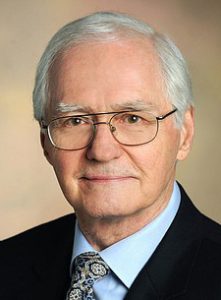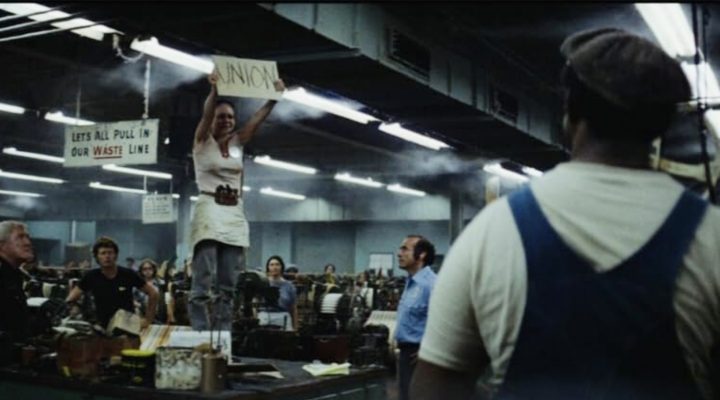I’m no movie buff, but there is this list of films in my head that I return to from time to time.
One of them is African Queen (Humphrey Bogart and Katharine Hepburn, 1951). I saw it at Fair Park Drive-In, Birmingham, Ala., in 1954. There I was, with the four most important people in my world crowded into our 1953 Plymouth sedan: my mother, my daddy, my brother and my grandmother.
The images stuck: The dangerous rapids, the icky leaches, the gentle melding of Hepburn’s virtuous and distant missionary and Bogart’s swarthy and passionate river rat, and the German gunboat, of course (it was, after all, a war movie).

Richard Conville
Then there’s The Sound of Music, another war movie actually (Julie Andrews and Christopher Plummer, 1965). It chronicles the vise of the Third Reich slowly tightening on Austria to the tune of Captain von Trapp’s “Edelweiss” sung to his children and the martial cadence of drums as the German high command strides into Salzburg.
Again, the images stuck: The slick getaway plan with the help of the nuns in the Abbey, von Trapp’s brittle fiancé who finally saw she did not have his heart, the enabling complicity of some, and the raw courage of others.
But there’s another film on my mind now. It’s about another kind of war that has been thrust upon us. It’s Norma Rae (Sally Field and Beau Bridges, 1979). The climax of the film (although not the end) has Norma standing on a table in that sweat shop of a textile mill in Eastern North Carolina holding up a sign, “UNION,” hand printed in large capital letters. The click-clacking of the looms is deafening, and the lighting is drab. Her coworkers, exploited every one, stand at their machines in awe and fear, mesmerized by her audacity. She spins slowly so they all can see the sign. Mill managers and owners stand in stunned silence as she holds up her plea for support (believing they must unionize to wrench from the owners even a semblance of humane treatment).
Around she goes again, holding the sign, making eye contact with each coworker. Then … then … after an eternity in movie time, the woman in the floral shirt and white scarf reaches out and shuts off her loom. It gets a little quieter. Minutes pass. Norma turns, urging the sign on them. Then the woman in the black sweater pulls a lever, and her machine stops. It gets a little quieter. Seventeen operators shut off their machines, one … by one … by one.
The mill falls silent. The battle is won.
“Remember there are signs all around that we need to talk about the kind of world we want to live in.”
Some of you have not decided what to do about the presidential election. You may have considered yourself a Republican all your life. You’ve really never had to think about it. It’s been second nature.
You may always have considered yourself a Democrat. You’ve really never had to think about it. But you’re also tired of the back and forth and all the negative campaigning.
Or you may be thinking you just won’t vote this time around. You don’t much keep up with politics anyway, and you’re certainly not going to start now, in the middle of all this mess.
Wherever you fall on some kind of political scale, Republican, Democrat, Nothing Much or Just Don’t Care, you may be tired of all the negativity in your media world. You yearn for some positivity and joy and hope and optimism. But there’s a disconnect. Your world is not on fire. You know some of your neighbors, and you have friends you can call on. Gas prices have dropped, and COVID is pretty much under control.
The disconnect is puzzling. You want some hope and yearn for change. You want the country to turn a corner. The good news is that you have a choice in this election. You can choose joy and hope and optimism. Even compassion and love.
So here’s a suggestion, a plea actually: When you are in a conversation with friends and the talk turns to politics, remember there are signs all around that we need to talk about the kind of world we want to live in, even if it’s uncomfortable. Heed those signs. Be like the woman in the floral shirt and white scarf who shut off her machine. Be No. 2. Share your dreams as well as your fears. Speak your piece.
There are very few Norma Raes (No. 1s) in the world, but Norma Rae would have failed without a No. 2. She, in the floral shirt and white scarf, set the example for the others; the flood gates broke open and the mill fell silent. In that silence they heard the truth, and then they were free.
Richard Conville is a retired professor of communication studies and a long-time resident of Hattiesburg, Miss. This column previously appeared in The Pine Belt News, Hattiesburg.


